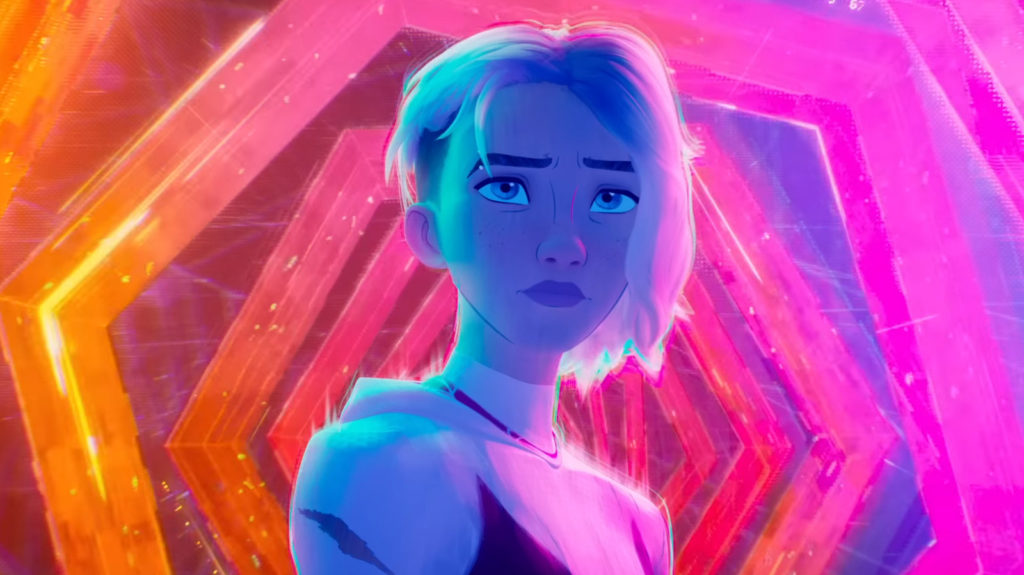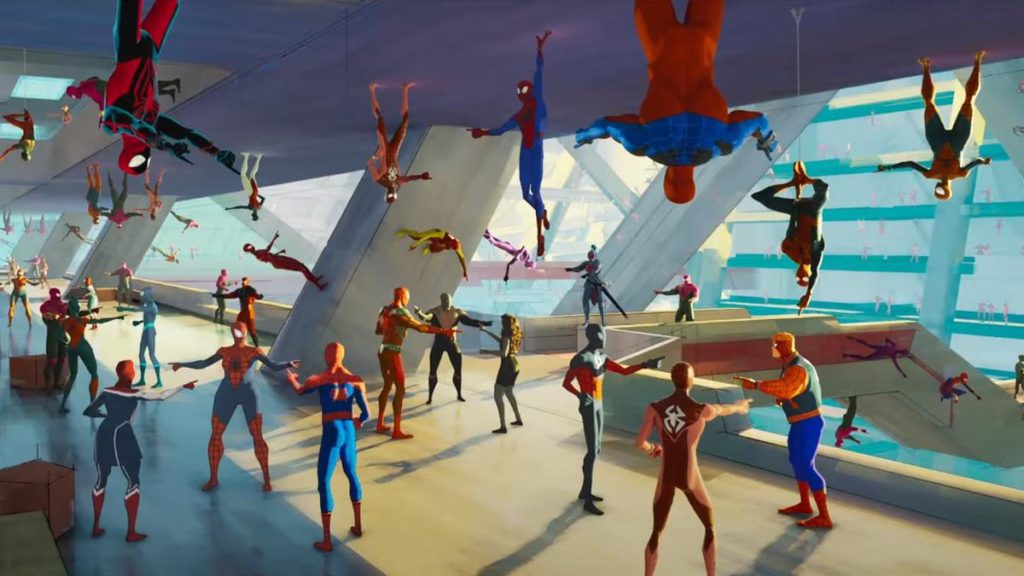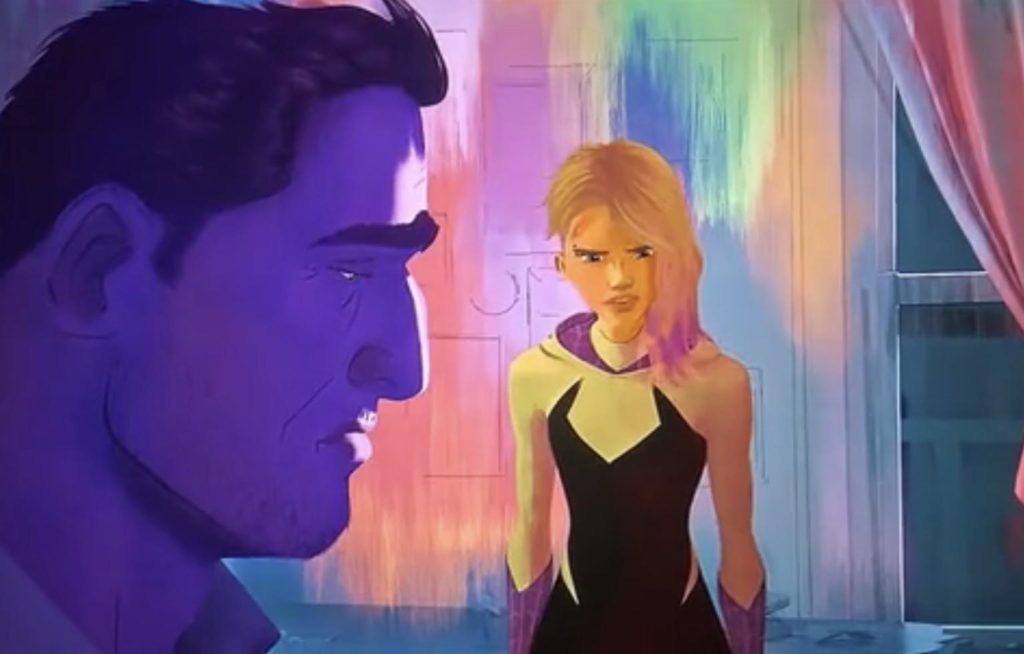Trans Allegories in Film: 'The Little Mermaid' (1989)
Films can alleviate alienation by presenting realities where the viewers feelings are shared by onscreen characters. 'The Little Mermaid" film can be interpreted as a transgender story.
Incluvie Foundation Gala - Learn More


This analysis of Spider-Man: Across the Spider-Verse is through a queer lens that informs this particular reading of the film. I neither claim these are intentional inclusions on part of the creators nor believe that such intentions are necessary for an interpretation to be meaningful. This interpretation has some previous context as the Spider-Man franchise is often read as a story about identity through development. With that disclaimer out of the way, let’s see why the masks Spider-people wear are allegorical to both a safe space and the closet. But in true Spider-verse narrative style, we should recap the events that are going to be referenced later in this essay. Miles Morales (Shameik Moore), the son of Lieutenant Davis (Brian Tyree Henry) and Rio Morales (Lauren Vélez), was bitten by a radioactive spider and has been the Spider-Man of Earth-1610. His Spider-manly activities make his parents suspicious of him. Gwen Stacy (Hailee Steinfeld) was similarly bitten by a spider and turned into Spider-Woman on Earth-65, where she lives with her father, Captain Stacy (Shea Whigham). Captain Stacy does not approve of Spider-Woman and in fact suspects her for the murder of Gwen’s best friend, Peter Parker.
Once Miles Morales, Gwen Stacy, and all the other spider people across the spider-verse are bitten by radioactive spiders, they are unable to go back to their previous lives. This is their shared inciting incident; things will never be the same. They realize and accept that this is a part of who they are and they’ll always be spider-people. It is a bittersweet experience though. While it comes with the freedom of webslinging through the city as superheroes, feeling the rush of the wind as they swing between skyscrapers, it also brought a new aspect to their identity that they are not immediately able to share with people. This parallels a common experience of many queer people who grow up in the cisheteronormative society. This can be read as a queer awakening.
These awakenings are real life inciting incidents for most queer people. It becomes a budding understanding of their identity outside of the cisheteronormative lens. This discovery of a new aspect of themselves can bring a sense of freedom. But it can also come with the added weight of having a hidden identity. The lack of acceptance for queerness often discourages people from living their truth and the awakening is only a moment of self-realization which then becomes a truth they have to hide from everyone else. This overlaps well with having a secret identity as a superhero. Especially as we think about having to hide your superpowers from everyone around you.
If the spider bite is an allegory for queer awakening, the spider suit and the mask are an allegory for the metaphorical closet. With their superhero costume, Miles Morales, Gwen Stacy, and any spider-person are free to express their superpowers. But it’s also where they hide their true selves. Apart from when she’s webslinging or fighting, Gwen often takes off her mask. Spider-Woman is a safe space for Gwen to express her spider powers. Yet she continually pulls her head out of the closet when she feels safe, usually in the presence of other spider-people, representing a parallel to found family in the queer community.
If Captain Stacy or Lieutenant Davis had been more welcoming of their respective Spider-Woman/Spider-Man, their children wouldn’t feel the need to hide behind that mask to them. There are moments in the film where Miles debates telling his mother that he is Spider-Man. During a conversation where he feels like she’s understanding his side of things, he looks up and down a few times and then begins, “I’m-“. However, after a pause of about six or seven seconds, he finishes saying, “I’m sorry I was late.” He doesn’t feel safe enough to come out and that is heartbreaking. In an even more candid moment later in the film, he tells Rio, “I thought if you knew, you wouldn’t love me the same.” He tells her to promise “nothing’s gonna change.”

Spider-Woman is held at gun-point by her father, Captain Stacy, at a moment early into the film. She realizes she’s trapped because she’s out of web-fluid and cannot escape by swinging away like she usually does. As her father starts reading Spider-Woman her Miranda rights, she assesses the situation and chooses to be vulnerable with the hope of appealing to her father’s parental sensibilities. It is an intensely emotional moment as she’s choosing to surrender the hidden identity she knows her father disapproves of in the hope that her relationship with her father is strong enough to survive this revelation. This scene is like a coming-out moment of any queer person’s life. The choice to reveal your truth when you don’t know if the reaction will be favourable is a conscious risk on the relationship you share with the person you’re coming out to, and this scene from Spider-man: Across the Spider-verse perfectly captures the emotional weight of the experience.
Unfortunately for Gwen, the Captain only interrogates her about how long she’s been lying to him and then continues reading her Miranda rights while she pleads with him to stop. “Can you just not be a cop for a second and be my dad here, and listen to me?” she asks him but it’s clear he isn’t willing to accept Gwen as Spider-Woman, still suspecting her for the murder of her own best friend, Peter Parker. This rejection is something many queer people are painfully familiar with where friends, family, or other loved ones have alienated them for their identity when they’ve come out as queer. This particular scene feels like an actual scene of a queer kid coming out to their parent and being rejected.

Friends and found family is often the only solace one can find in rejection. When surrounded by others from the queer community, a queer person feels accepted and understood and safe enough to openly identify as queer. They don’t have to exist as a double-identity and fear being turned into an outcast by the people around them when they’re with their found community. Especially if someone has been ostracized by the people they’ve come out to, finding such a community is often the only way they can survive. After Captain Stacy abandons Gwen, she is taken in by Miguel O’Hara (Oscar Isaac) and she joins the Spider society where she is Spider-woman all the time. There’s no need to hide. It is a safe space that she can be whoever she wants, whenever she wants. This acceptance helps her feel comfortable with her “secret” identity. When Gwen meets Miles for the first time and tells him about her experience of coming out, he says, “Maybe some things are supposed to be just for us.” It’s such a special thing for you, but you can’t always share it with everyone you want. Instead, you seek others who understand what it’s like. To quote Gwen Stacy, “How many people can you talk to about this stuff?”
Miles Morales discovered he’s Spider-Man in Spider-Man: Into the Spider-verse, but to be able to use his superpowers like his invisibility, he needed tons of practice. Being Spider-Man on a daily basis and fighting bad guys has helped him level up. But that’s not all that this time spent as Spider-Man has given him. Since being in the suit is the only time he can use his powers without hesitation or fear of being identified, that mask and the identity of Spider-Man provide Miles a safe space for him to unashamedly be himself. He loves being Spider-Man and all the things that come with it. Most queer people who live their truth, whether all the time, or in hiding, do not usually regret being out of the closet in that safe space. Of course there are consequences, some markedly negative, of being out, but many would rather face those consequences than live closeted. When you’re constantly modifying your behaviour to ensure you appear to be conforming to cisheteronormative standards, you begin yearning for a place where that doesn’t have to happen. So you put on a wig and heavy makeup, maybe even a masquerade mask and go to queer gatherings. There’s no pretense on your part, and you don’t have to worry about getting caught. Some part of you wishes you could share this part of yourself with everyone, but until then, this works too!

Towards the end of Spider-Man: Across the Spider-verse, Gwen and Captain Stacy have a confrontation when Gwen tries to explain her situation to her father once again. Earlier, when she had come out to him as Spider-Woman, she had remarked, “I’ve thought about telling you, but you can see why I didn’t want to.” But when she runs into him again, he seems less interested in arresting her, so she decides to engage in a conversation with him. The monologue that follows has a very specifically queer theme. Gwen tries to explain to her father that she dons the Spider-Woman suit for the same reason as her father – to do the right thing. She’s also a crime-fighter, but she has her own methods and it pains her that she can’t share this life with other people. The fact that her own actions led to the death of her best friend haunts her all the time, and in one particularly emotional moment, Gwen helplessly says the people she loves the most “can only know half of who I am.”
Any closeted person will feel like people closest to them only know a part of them. Gwen almost breaks down as she tells her father she cannot lose another friend, referring to him as the friend. The reconciliation they then go through is something many queer kids can only dream of. He decides to quit his job and focus on being a supportive father for his daughter who’s clearly struggling with her identity. That’s a rare phenomenon, but I sincerely hope that the queer people in the world having these conversations encounter the same happier ending too.
Gwen’s story is an allegory for the struggle of trans kids, and her world is often painted in shades of pink, blue and white, which are also the shades of the transgender flag and her costume. So, if a trans person feels seen by her existence, which many fans claim they have felt, I don’t think anyone has the right to claim it’s a false idea because art is open to interpretation. There’s hints and people are creating theories based on them. Every other theory that applies to the plot gets unanimously treated like a fan theory, but this gets treated like trans propaganda. Like Reddit user HappySisyphus8 points out, “People have had ridiculous fan theories and fan fiction for as long as there have been things to be fans of.” So no, it’s not bigoted to read her character as cishet (which she canonically is in the comics, making it wrong to claim she’s canonically trans) but it is bigoted to bully someone who finds solace in reading Gwen as a trans character.
When Miles finally meets the Spider Society and Miguel O’Hara, the latter tells him he has to let his father die in order to truly become Spider-Man as the death of a police captain close to Spider-Man is a canon event. Miles refuses to accept this because Spider-Man always saves everyone or at least tries to. Even the people closest to him refuse to help him when he tries to escape from the Spider Society to go protect his dad. Miguel points out that since Miles was bitten by a radioactive spider from a different world, he’s in fact an anomaly and not a normal Spider-Man. This argument, and the fact that his own community refuses to help him in this moment makes one think of the transphobic or aphobic queer people who aren’t willing to accept trans people or aro/ace people in the community, claiming they’re unnatural unlike lesbians, gays, and bisexuals. Miles finally escapes them and makes his way home. When he meets his mother there, he tells her he fought all the people who rejected him or hurt him. This is followed by a proud proclamation of “I know how strong I am now.” In a queer reading of Spider-Man: Across the Spider-verse, his escape scene is allegorical to someone standing up to other queers who won’t accept them.
I have no intentions of convincing people that the concept of Spider-Man or the story of Gwen Stacy and Miles Morales are all inherently queer-coded. The entire concept of a lens is that it informs every reading of a film. That being said, I hope my reading made a case for how lenses affect interpretations and how a queer reading of Spider-Man: Across the Spider-verse has merit to it. It doesn’t have to be canon or confirmed by the creators since it’s an interpretation. Spider-Man is widely popular because the character makes people feel seen. He’s a superhero with everyday problems, so if queer people find solace in him a little differently, why not let them? Bigotry and divisive behaviour is unbecoming of a fanbase of such an inclusive film franchise that features diverse characters and creators.
Related lists created by the same author
Films can alleviate alienation by presenting realities where the viewers feelings are shared by onscreen characters. 'The Little Mermaid" film can be interpreted as a transgender story.
Related diversity category
'Don't Make Me Go' is what you would expect, Wally and her father, Max, clash tremendously and don't understand each other. Although, it's very heartwarming.
Related movie/TV/List/Topic
The cancelling of these series is being blamed on the writers' strike and low viewership, but it's just the latest example of the industry's lack of appreciation for stories about queer women.